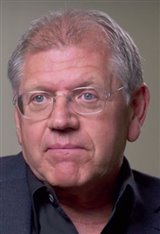Robert Zemeckis Biography

Born: May 14, 1952
Date of Birth: May 14, 1952
Born and raised on the south side of Chicago, Robert Zemeckis began making films with an 8mm camera while in high school. He attended Northern Illinois University before transferring to the University of Southern California School of Cinema.
After winning a student Academy Award for his film Field of Honor, Zemeckis showed the film to directors Steven Spielberg and John Milius. Later, the filmmakers made it possible for Zemeckis and his USC writing partner Bob Gale to get a development deal for their original screenplay 1941 that Spielberg chose to direct. Even though the film had disappointing box office returns, Spielberg was convinced that his protegés were valuable commodities.
Zemeckis made his directorial debut in 1978 with a screenplay he co-wrote with Bob Gale, I Wanna Hold Your Hand. Despite the film's low budget, it demonstrated Zemeckis' ability to combine credible live-action sequences with elaborate special effects devices. The two teamed again to make Used Cars.
After semi-successful films such as Romancing the Stone, Death Becomes Her, and The Public Eye, Zemeckis struck gold with the Back to the Future trilogy, which earned more than $350 worldwide. He also directed the top-grossing film of 1988 Who Framed Roger Rabbit.
By the early 1990s, Zemeckis was recognized as a director of great technical skill but little personal viewpoint, something that changed with the 1994 release of Forrest Gump. Beyond its top-heavy special effects, the film was a distinctly human drama about a mildly retarded young man who achieves professional and personal success by refusing to see anything but the good in people. Expected to be a moderately profitable feature, Forrest Gump amazed everyone by being the top money spinner of the summer of 1994—and one of the highest-grossing movies of all time. As an added bonus, it helped Zemeckis snag a Best Director Oscar, as well as several other awards.
Zemeckis worked with Hanks again on the critically acclaimed Cast Away (2000), which received two Oscar nominations, then transformed him into an animated trainmaster for the adventure The Polar Express (2004), which received three Oscar nods.
He continued to direct animated titles featuring actors such as Anthony Hopkins, Ray Winstone and Angelina Jolie in Beowulf (2007), as well as Canadian Jim Carrey in A Christmas Carol (2009).
Flight (2012), inspired by the prowess of Quebec airplane pilot Robert Piché and starring Denzel Washington, was followed by The Walk (2015), about tightrope walker Phillippe Petit who walk on a wire between the World Trade Center towers in New York City.
The media focused on his next project for the big screen, mostly because of the crazy rumors that ensued. In response to the intimate scenes in Allied (2016), people were led to believe that stars Brad Pitt and Marion Cotillard had an affair during filming, causing a problem in Brad Pitt's marriage to Angelina Jolie. However, it was denied vehemently by the French actress.
In 2018, the director/screenwriter unveiled the live-action/animation film based on a true story, Welcome to Marwen (2018), that found Steve Carell playing a man who deals in his own way with the amnesia and brain damage that followed a violent attack.
Zemeckis was married to late actress Mary Ellen Trainor—with whom he has a child—from 1980 to 2000. At the end of 2001, he married second wife, actress Leslie Harter, with whom he has two more children.
Zemeckis sits on the USC School of Cinema-Television's Board of Councilors.
Filmography:
Flight (2012)
Disney's A Christmas Carol (2009)
Beowulf (2007)
The Polar Express (2004)
Macabre (2001)
Cast Away (2000)
What Lies Beneath (2000)
Contact (1997)
Forrest Gump (1994)
Death Becomes Her (1992)
Back to the Future Part III (1990)
Back to the Future Part II (1989)
Who Framed Roger Rabbit (1988)
Back to the Future (1985)
Romancing the Stone (1984)
Used Cars (1980)
I Wanna Hold Your Hand (1978)
Field of Honor (1973)
The Lift (1972)